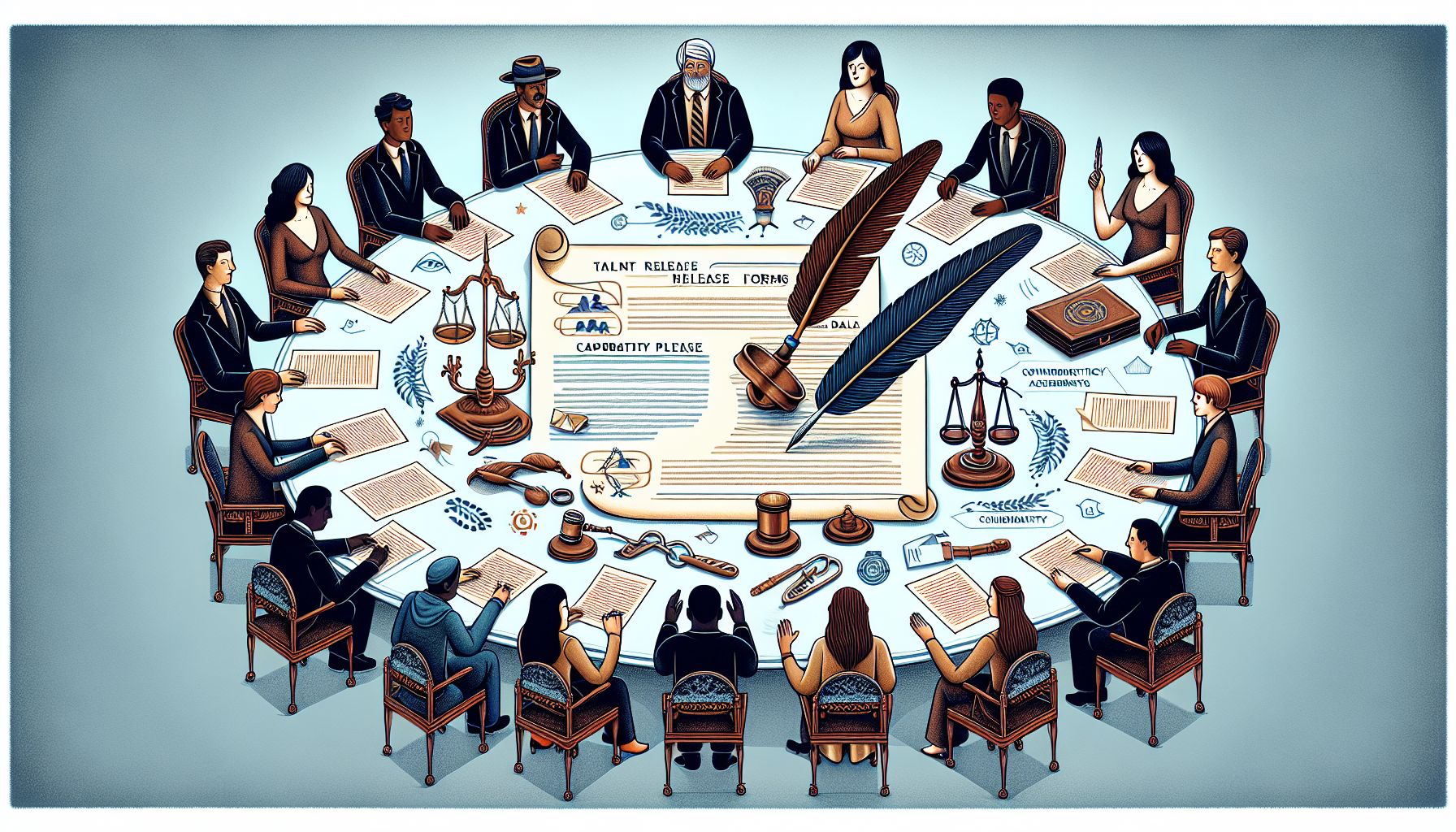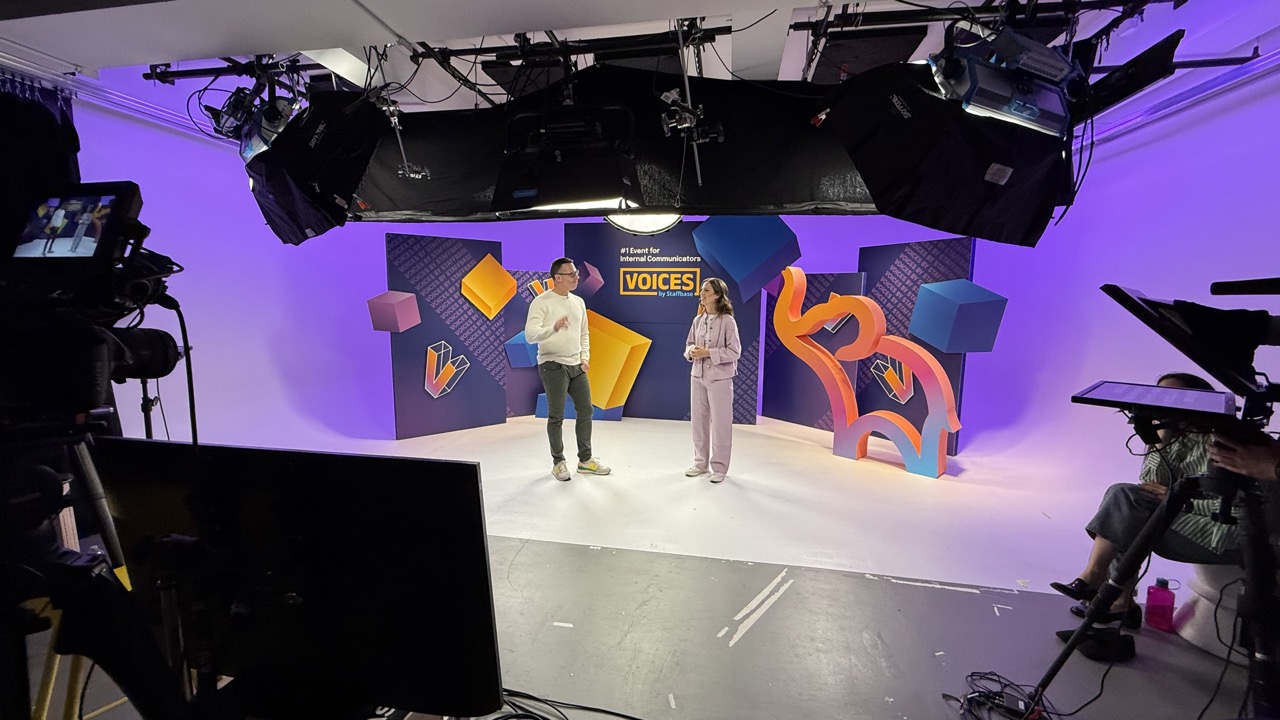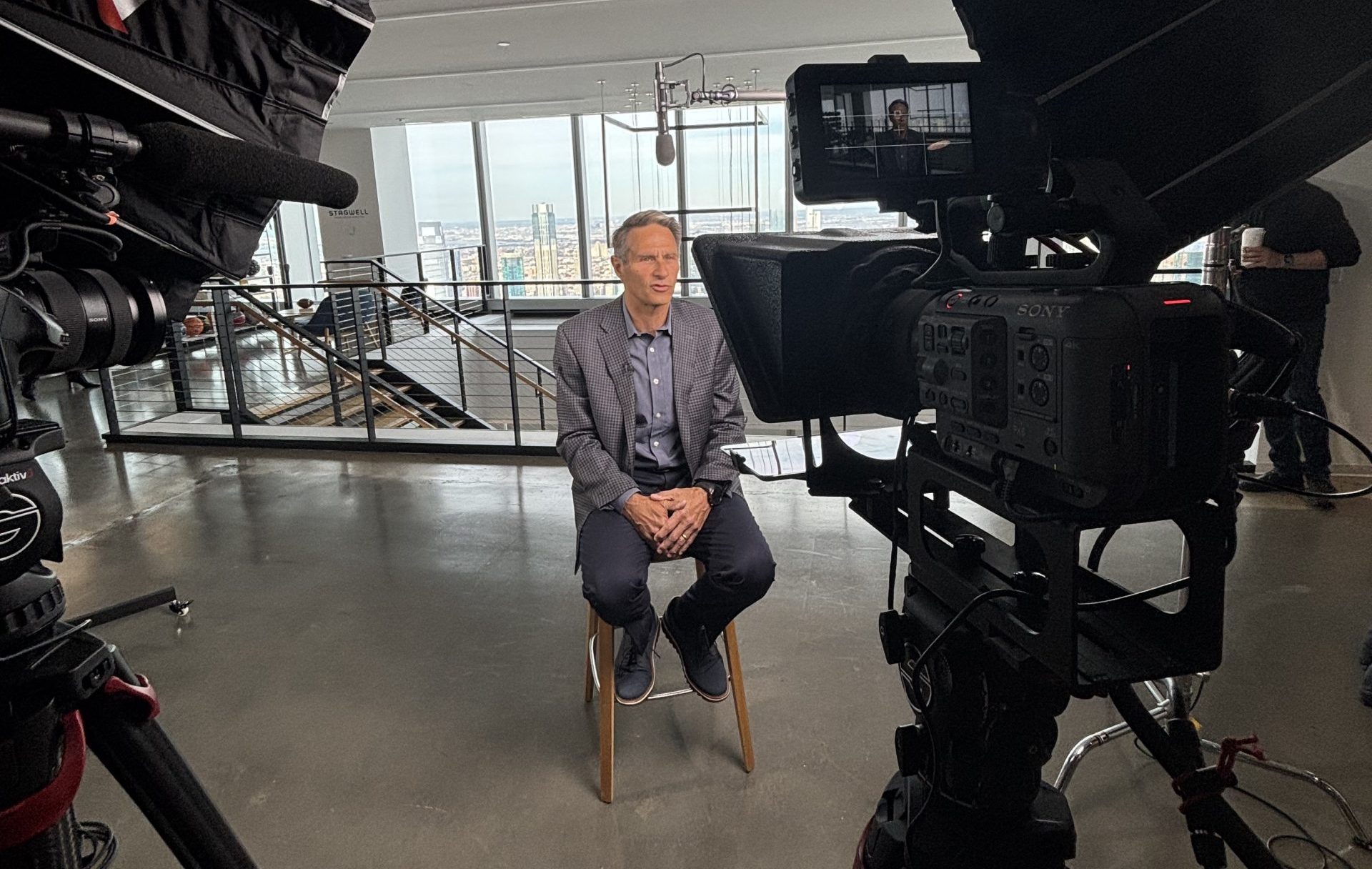When creating corporate videos, it’s crucial to consider legal issues like copyright, intellectual property rights, privacy, and worker classification. This article will guide you through these key legal considerations, helping you answer the question, “what are the key legal considerations in creating corporate videos?” By understanding these potential legal pitfalls, you can ensure your production runs smoothly.
Key Takeaways
- Securing appropriate permissions and licenses for copyrighted material, including music and video elements, is crucial to avoid legal consequences and ensure compliance during corporate video production.
- Obtaining explicit consent and adhering to privacy regulations, such as GDPR, are essential for protecting individual privacy rights and preventing costly legal repercussions.
- Clearly defined contracts and agreements, including talent and location releases, as well as proper data security measures, are fundamental to ensuring a smooth and legally compliant video production process.
Copyright Issues and Permissions
One of the most pressing legal considerations in corporate video production is managing copyright issues and permissions. Using copyrighted material without explicit permission can lead to severe legal consequences, including civil lawsuits and substantial statutory damages. Clearances and licenses for any additional video and audio elements should be obtained by businesses to avoid such pitfalls. This includes securing licenses for music, which can be obtained from music licensing organizations.
The concept of fair use often confuses many. While it allows limited use of copyrighted material for purposes like commentary, criticism, and education, it is determined on a case-by-case basis. Misunderstanding fair use provisions can result in copyright infringement claims. A proactive approach is needed, which includes securing necessary permissions and licenses early in the production process, to guarantee legal compliance and circumvent potential complications.
Copyright registration is another critical aspect of copyright law. It provides legal evidence of ownership and is necessary for filing an infringement lawsuit. Transferring the copyright of a work must be in writing and signed by the copyright owner. Businesses can shield themselves from the risks tied to unauthorized use of copyrighted material by comprehending and abiding by these key legal issues.
Intellectual Property Rights
Intellectual property rights are essential for safeguarding creative works and ensuring that creators receive the recognition and compensation they deserve. Intellectual property (IP) includes:
- Patents
- Trademarks
- Copyrights
- Trade secrets
Each of these provides exclusive rights to the creator. It is imperative to safeguard your own IP to prevent unauthorized replication of your inventions, leading to potential financial losses and curbed innovation.
Using someone else’s intellectual property without permission can result in legal disputes and financial penalties. Therefore, it’s vital to be aware of the intellectual property issues surrounding your corporate videos. Whether you’re using a patented technology, a trademarked logo, or copyrighted material, obtaining the necessary permissions and licenses is a must. This not only secures legal compliance but also promotes respect for creative works within the industry.
Privacy and Consent

Privacy and consent are paramount when creating corporate videos, especially in light of stringent regulations like the GDPR. Obtaining proper consent from individuals appearing in your videos is not just a courtesy—it’s a legal requirement. GDPR regulations demand that businesses demonstrate they have considered the impact of a person appearing in their film. Failing to obtain explicit consent can lead to privacy infringements and necessitate costly reshoots.
Moreover, GDPR compliance involves more than just obtaining consent. Businesses must ensure their privacy policies are up-to-date and accessible, and they must be prepared for individuals to withdraw their consent even after the video has been published. Non-compliance with GDPR can result in hefty fines, reaching up to 10 million pounds.
Prioritizing privacy and obtaining appropriate consents are key legal considerations that can safeguard individual rights and prevent legal problems for your business.
Employment and Independent Contractors
Classifying workers correctly as either employees or independent contractors is another critical legal consideration in corporate video production. Misclassifying employees as independent contractors can result in serious penalties, fines, and legal consequences for employers.
Employees typically:
- Work under the direct control of their employer
- Have specific tasks, work hours, and conditions dictated by the employer
- Receive benefits such as health insurance, retirement plans, and paid time off.
Independent contractors, on the other hand, have more autonomy in completing their work, often setting their own schedules and using their own tools. They negotiate their compensation based on the project scope and are responsible for their own taxes. Ensuring compliance with minimum wage, overtime, and workplace safety regulations is essential for both employees and independent contractors. Understanding these distinctions and complying with employment laws can aid businesses in averting legal issues and promoting a just work environment.
Defamation and False Statements
Making false statements that harm someone’s reputation constitutes defamation. This can have serious legal consequences for video producers. For a statement to be considered defamatory, it must be read or viewed by at least one other person besides the plaintiff. Identifying the plaintiff can occur by naming them directly or showing their image. Public figures must prove the statement was made with ‘actual malice’ to claim defamation, whereas private individuals need to show that the statement was made negligently.
Implementing good journalistic practices and thorough fact-checking can reduce the risk of defamation. Additionally, errors and omissions insurance can provide protection against intellectual property violations, libel, slander, and defamation claims. Maintaining vigilance and accuracy in your content can safeguard your company and the individuals involved from defamation lawsuits.
Use of User Generated Content

Incorporating user-generated content (UGC) into corporate videos can be a double-edged sword. While it adds authenticity and engagement, it also poses significant legal risks. UGC includes:
User-generated content is often found in the form of a blog post, with content created by users rather than traditional publishers. Companies must ensure that users have the necessary rights to the content they upload to avoid legal repercussions.
Failure to obtain proper permissions for UGC can lead to takedown notices, lawsuits, and financial penalties. It’s crucial to vet UGC for authenticity and transparency, ensuring any affiliations or incentives are disclosed. Careful management of UGC and securing necessary permissions can allow businesses to leverage its benefits while diminishing the risks of copyright infringement and privacy violations.
Contracts and Agreements

Clear contracts and agreements are the backbone of any successful corporate video production. The terms and conditions of the production, such as payment, credit, and other essential details, are outlined by them. This ensures that all necessary information is clearly established. Some common types of contracts and agreements in corporate video production include:
- Production services agreement: a contract between a financier or distributor and a production company to manage various aspects of media production
- Talent release agreement: a contract between the production company and the talent, granting permission to use their image and likeness in the video
- Location release agreement: a contract between the production company and the owner of a location, granting permission to film on their property
- Music licensing agreement: a contract between the production company and the rights holder of a song, granting permission to use the music in the video
These agreements ensure that all parties understand their responsibilities and the scope of the project.
Talent release forms are vital for securing legal permission to use an actor’s likeness in a production. Similarly, location permits are necessary for filming in public or private locations. Confidentiality agreements protect sensitive information and ensure that all parties involved are bound to keep information confidential. Establishing clear contracts and agreements can provide protection for businesses and assure a seamless production process.
Data Security and Confidentiality

Data security and confidentiality are crucial in corporate video production. Here are some measures you can take to ensure data security:
- Encrypt and password-protect files to prevent unauthorized access.
- Use secure communication channels, such as encrypted email services and messaging apps, to protect sensitive information.
- Limit and monitor access to project files, ensuring that only those who need it for a specific purpose and duration have access.
Trade secrets, such as customer lists and production processes, require measures like nondisclosure agreements to maintain confidentiality. It’s also important to destroy or securely delete unnecessary files after project completion to prevent data leakage or misuse. Implementing strong data security measures can enable businesses to safeguard their sensitive information and uphold the confidentiality of their projects.
Insurance and Liability
Insurance is a vital component of managing the risks associated with corporate video production. Here are some types of insurance to consider:
- General liability insurance: This covers bodily injury and property damage to third parties during filming.
- Workers’ compensation insurance: This covers medical expenses and lost wages for employees injured on the job.
- Equipment coverage policies: These protect against theft and loss of production equipment, including cameras, lighting gear, and rigs.
Special add-on policies can cover specific needs, such as:
- aerial photography
- stunts
- drones
- underwater shoots
A certificate of insurance (COI) is crucial on set, displaying your insurance information and ensuring compliance. Securing appropriate insurance coverage can shield businesses from financial risks and guarantee a smooth production process.
Distribution and Compliance
Ensuring compliance with distribution guidelines, online terms, and applicable statute is critical for the success of corporate videos. Provisions such as web beacons for ad delivery, default privacy settings, and liability for unauthorized use of accounts are customary in the online terms of widely used social media applications. Media organizations are generally not liable for third-party comments on their websites under Section 230 of the Communications Decency Act.
Adhering to these guidelines and understanding the limitations of liability can protect businesses from legal issues related to distribution. Ensuring legal compliance with online terms and privacy settings can help businesses navigate the complexities of video distribution and effectively reach their target audience.
How ASL Productions Can Help You With Legal Considerations in Creating Corporate Videos
Navigating the complex legal landscape of corporate video production can be daunting, but ASL Productions is here to help. With expertise in managing copyright, privacy, and consent issues, ASL Productions ensures compliance with legal requirements, minimizing risks associated with intellectual property and employment contracts. Companies can streamline the video production process while complying with data security and confidentiality standards by partnering with ASL Productions.
ASL Productions offers nationwide services, including:
- Consistent communication and quality for corporate video projects
- Adherence to local legal requirements
- Capturing authentic testimonials that can legally be used in marketing materials, ensuring all necessary permissions are secured
You can focus on creating compelling content while the legal complexities are handled by leveraging the expertise of legal counsel. Contact us today!
Summary
In summary, navigating the legal terrain of corporate video production involves understanding and addressing critical issues such as copyright, intellectual property, privacy, employment, defamation, user-generated content, contracts, data security, insurance, and distribution compliance. Each of these areas presents unique challenges, but with proper knowledge and preparation, businesses can create legally sound and professionally polished videos.
By taking proactive steps to manage these legal considerations, you can protect your business from potential legal pitfalls and ensure a smooth production process. Remember, the key to success lies in understanding the legal landscape and making informed decisions at every stage of video production.
Frequently Asked Questions
Why do I need explicit permission to use copyrighted material in my corporate video?
You need explicit permission to use copyrighted material in your corporate video to avoid copyright infringement claims, civil lawsuits, and substantial statutory damages. Obtaining clearances and licenses ensures legal compliance and protects your business from legal repercussions.
How can I protect my intellectual property in corporate video production?
To protect your intellectual property in corporate video production, secure patents, trademarks, copyrights, and trade secrets to prevent unauthorized use and legal complications. This safeguards your creative works and minimizes the risk of financial loss.
What should I do to comply with GDPR regulations when filming corporate videos?
To comply with GDPR regulations when filming corporate videos, make sure to obtain explicit consent from individuals appearing in the videos and keep privacy policies up-to-date. Be prepared for individuals to withdraw consent even after the video has been published.
Why is it important to classify workers correctly as employees or independent contractors?
It is important to classify workers correctly as employees or independent contractors to avoid penalties, fines, and legal consequences. Proper classification ensures that workers receive the appropriate benefits and job stability, or autonomy and tax responsibilities.
How can ASL Productions help with the legal aspects of corporate video production?
ASL Productions can help with the legal aspects of corporate video production by providing expert guidance on copyright, privacy, and consent issues, as well as ensuring compliance with legal requirements and minimizing risks associated with intellectual property and employment contracts.






